Overcoming the Execution Challenges of Mission-Critical Projects
Overcoming the Execution Challenges of Mission-Critical Projects
Download the reportThe volume of critical enterprise transformation initiatives has surged since 2020. Yet, it’s become dramatically more challenging to successfully execute those projects. One-third of executives we surveyed said it’s become more difficult—with only 15% of companies achieving key goals. Read the report to learn how what project execution leaders are doing differently—and how your organization can join their ranks.
Research Overview
To understand the challenges large companies face in executing mission-critical projects, we surveyed 404 senior executives in September 2022 across North America, Europe and Asia Pacific, and in four global industries.

RGP recently surveyed senior executives at 404 companies with $1 billion or more in revenue, headquartered throughout North America, Europe and Asia-Pacific.
Sectors
Per Company
Explore the data through industry and regional lenses

Life Sciences Research
Achieve critical goals for complex strategic initiatives

Healthcare Services
The Systemic Impact of Healthcare Staffing Shortages on Mission-Critical Projects

Financial Services Research
Improve success rates for data-intensive projects

Europe
Why the Mission-Critical Projects of Companies in Europe Often Flounder

Only 15% of companies achieved all of their critical project goals and 24% say less than half of their projects were successful.
Top challenges include managing hybrid project teams and team members from different organizations.
Pandemic-driven staffing shortages gave rise to a dynamic workforce model comprising both employees and outside consultants as well as hybrid teams working both at home and in the office.
Managing these complex dynamics made it very difficult to successfully complete projects and deliver the expected outcomes.
Top project execution challenges center around teams and talent:
- Coordinating people working at home and from offices (54%)
- Managing organizationally diverse teams (52%)
- Lack of capable project leaders (41%)
- Lack of capable talent in other key roles (40%)
Other key factors increasing post-pandemic critical project difficulty include:
- Unrealistic project goals (38%)
- Poor tools for project collaboration (36%)
- Lack of adequate budgets (36%)
- Abrupt changes in project goals (35%)

79% of leaders say the ability to manage team members from multiple firms is an important or very important factor to project execution success.
Outside consultants are expected to comprise 48% of the average project execution team by 2024.
Key Insight:
Managing teams with people from multiple firms is one of the biggest challenges but also one of the biggest contributors to successful project execution. In other words, it may not be easy — but it’s worth it.
What does it take to overcome the challenges?
Strong project leadership, including the ability to manage hybrid and organizationally diverse teams, and great collaboration tools top the list of key success factors. Other factors include strong talent in other key project roles, realistic project goals at the outset, and the ability to handle abrupt changes in those goals.

Project execution leaders are three times more likely than laggards to say their project managers have strong or extremely strong skills vs. weak or moderate skills.
The impact of successful project execution goes beyond the benefits of any one initiative. Companies that deftly orchestrate organizationally diverse and hybrid teams have outperformed the competition since the pandemic began. Project execution leaders dramatically outperformed laggards in the market, increasing average market capitalization by 63% between 2017 and 2022, while the market cap of laggards declined 24% over that period.

Almost three-quarters of project execution leaders believe highly effective project managers give them a very strong competitive advantage.
73
%of executives surveyed said it was important, very important or extremely important to bring talented outsiders into key project roles.

“The biggest challenges today, by far, are managing the hybrid team with both remote and office workers and managing organizationally diverse teams. But if you get them right, they’re also the greatest competitive advantages.”
— RGP CEO Kate Duchene
MORE RESEARCH
Explore the latest research from RGP
The Transformational Impact of a Dynamic Workforce™
Learn how forward-looking C-Suites are driving a revolution in workforce strategy.


